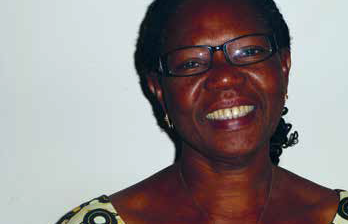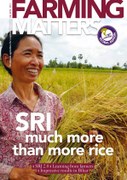(March 2013) Fatou Batta looks at the key role women play in African agriculture.They do more than 70% of the work on the land, and are responsible for almost all processing activities. But do we understand clearly enough the roles of rural women farmers? How can we provide women with strategic support that can enable them to influence agriculture policies?

These inputs are expensive, but not necessary. Better local solutions exist, that are able to ensure food security and strengthen the resilience of small-scale farmers to climate change. These solutions, which fall under the umbrella of agro-ecology, include mulching, natural pest management, and using local seeds and organic manure. Such approaches are affordable, adapted to local ecosystems and have demonstrated their ability to improve the food security of communities while preserving their natural resources.
Women play a vital role in this landscape. They are central to African agriculture: they do more than 70% of the work on the land, and are responsible for almost all processing activities. In times of crisis, women ensure the survival of their families by developing coping strategies to ensure their families are fed. They are the primary link between production, consumption and nutrition – for their children and, indeed, the whole family. And they demonstrate that the use of agro-ecological practices is paying off. We have recorded testimonies of large numbers of women, heads of households or not, who are capable of feeding their families and covering their children’s school fees. Thanks to their perseverance, these women have been able to increase their yields, and are now producing enough food.
The need to provide support to such innovative women farmers is evident. But some fundamental questions remain. Do we understand clearly enough the roles of rural women farmers? How can we provide women with strategic support that can enable them to influence agriculture policies? It is crucial to start developing answers to these questions so that we can spark a shift in resources and invest more in ecological agriculture. This will support the rural people in West Africa to work towards truly sustainable livelihoods.
Text: Fatou Batta
Fatou Batta is from Burkina Faso. She is the Groundswell International Co-coordinator for West Africa and a member of the “We are the Solution! Celebrating African Family Farming” campaign of the Alliance for Food Sovereignty in Africa (AFSA).
E-mail: fbatta@groundswellinternational.org

